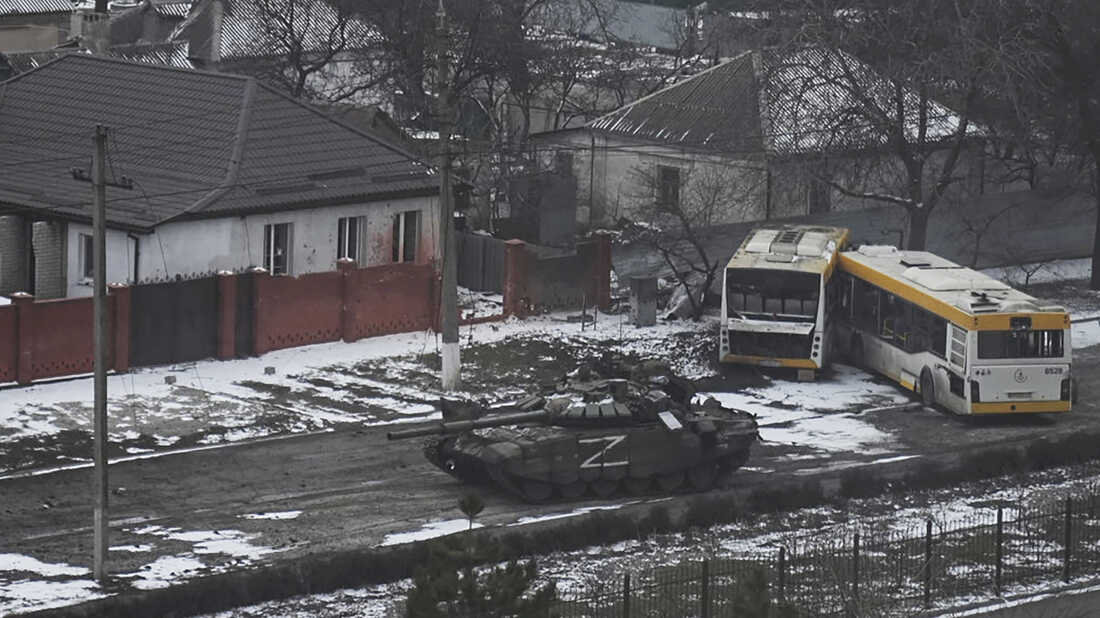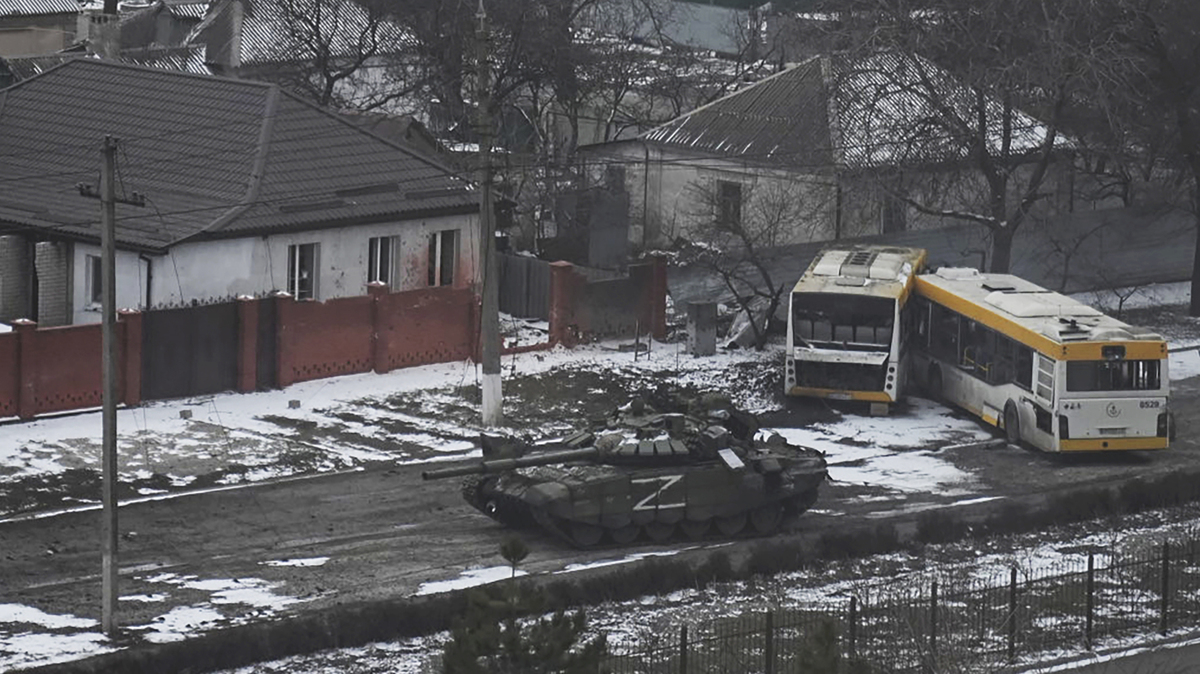
A Russian army tank moves through a street on the outskirts of Mariupol, Ukraine. Evgeniy Maloletka/AP hide caption

A Russian army tank moves through a street on the outskirts of Mariupol, Ukraine.
Evgeniy Maloletka/APThe scenes of devastation in Mariupol, a southeastern port city in Ukraine, are increasingly reflected in cities across the country as Russian forces advance. More than 2,000 people have been killed in the port city since the start of Russia's invasion. A humanitarian crisis is deepening, as residents say they can't find drinking water or food, and the International Committee of the Red Cross says they cannot get emergency supplies in.
Journalists Maura Reynolds and David Filipov both reported on Russia's military campaigns in Chechnya. Olga Oliker of International Crisis Group is an expert on Russian military strategy. They talk about the lessons learned from past Russian actions in Chechnya, and later in Georgia and Syria, to help explain what could come next in Ukraine.
Email us at
This episode was produced by Mallory Yu and Connor Donevan. It was edited by Fatma Tanis and Christopher Intagliata. Our executive producer is Cara Tallo.

 Live Radio
Live Radio